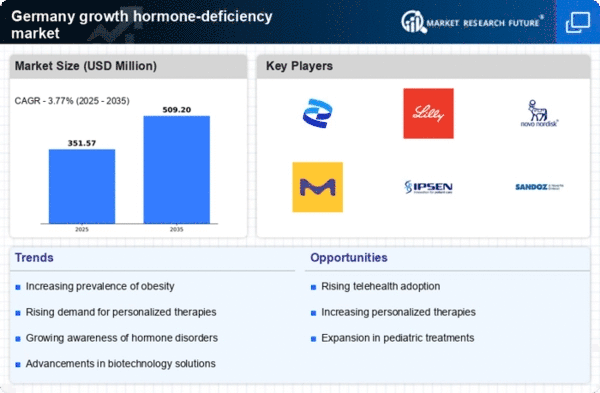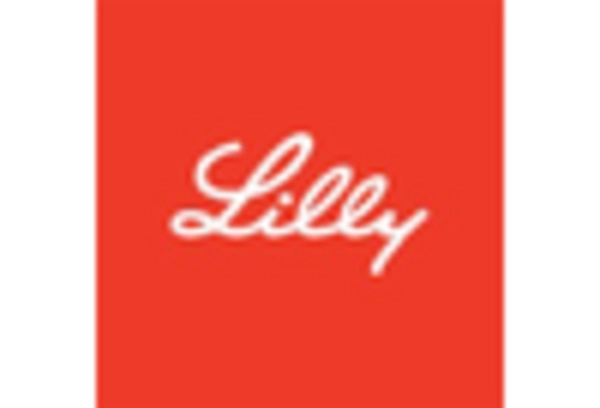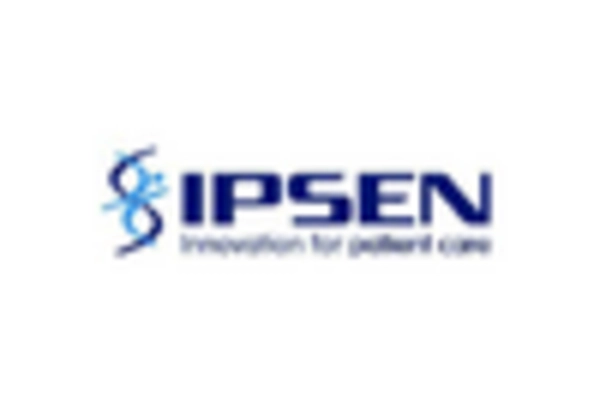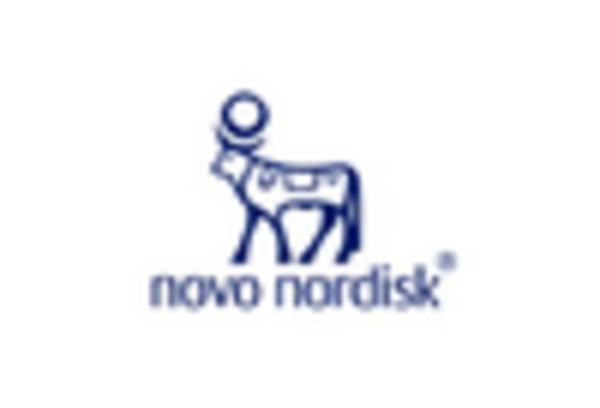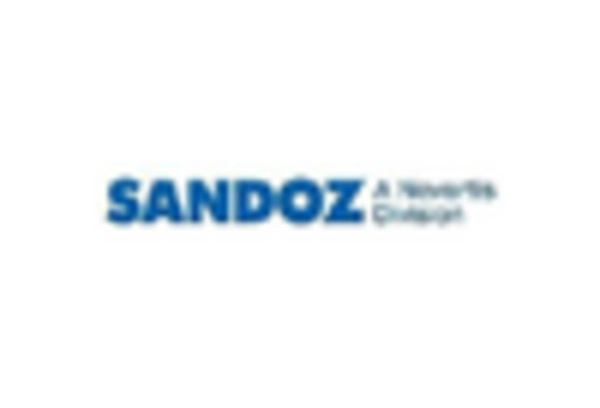Rising Healthcare Expenditure
Germany's healthcare expenditure has been on an upward trajectory, which positively influences the growth hormone-deficiency market. With the government allocating a significant portion of its budget to healthcare, the availability of funds for innovative treatments is increasing. In 2025, healthcare spending is projected to reach approximately €500 billion, reflecting a commitment to improving patient care. This financial support facilitates access to advanced therapies for growth hormone deficiency, enabling more patients to receive necessary treatments. Additionally, the emphasis on preventive care and early diagnosis aligns with the needs of individuals suffering from growth hormone deficiency, further propelling market growth. As healthcare investments continue to rise, the growth hormone-deficiency market is likely to benefit from enhanced treatment options and increased patient access.
Supportive Regulatory Environment
The regulatory landscape in Germany is becoming increasingly supportive of the growth hormone-deficiency market. Recent initiatives by health authorities aim to streamline the approval process for new therapies, thereby encouraging pharmaceutical companies to invest in research and development. This regulatory flexibility is crucial for the introduction of innovative treatments that can address unmet medical needs. Furthermore, the German Medicines Agency (BfArM) has been actively promoting the use of biosimilars, which could potentially lower treatment costs and increase accessibility for patients. As regulations evolve to support the growth hormone-deficiency market, stakeholders are likely to see a more favorable environment for launching new products and expanding existing treatment options.
Growing Patient Advocacy and Support Groups
The emergence of patient advocacy groups in Germany is playing a pivotal role in shaping the growth hormone-deficiency market. These organizations are dedicated to raising awareness about growth hormone deficiency and providing support to affected individuals and their families. By facilitating educational programs and outreach initiatives, they help to improve understanding of the condition and its treatment options. This increased awareness is likely to lead to earlier diagnoses and a greater demand for therapies. Additionally, patient advocacy groups often collaborate with healthcare providers and policymakers to influence healthcare policies, ensuring that the needs of patients are prioritized. As these groups continue to gain traction, they are expected to significantly impact the growth hormone-deficiency market by fostering a more informed patient population.
Technological Advancements in Treatment Delivery
Innovations in drug delivery systems are significantly impacting the growth hormone-deficiency market. The introduction of advanced delivery methods, such as pen injectors and wearable devices, enhances patient compliance and convenience. These technologies allow for more precise dosing and reduce the discomfort associated with traditional injection methods. In Germany, the adoption of these advanced systems is likely to increase as patients and healthcare providers recognize their benefits. Moreover, the integration of digital health solutions, such as mobile applications for monitoring treatment adherence, is expected to further streamline the management of growth hormone therapy. This technological evolution not only improves patient outcomes but also stimulates market growth by attracting new patients who may have previously been deterred by conventional treatment methods.
Increasing Prevalence of Growth Hormone Deficiency
The growth hormone-deficiency market is experiencing a notable increase in prevalence rates within Germany. Recent studies indicate that approximately 1 in 4,000 children are diagnosed with growth hormone deficiency, leading to a growing patient population. This rise in cases is attributed to improved diagnostic techniques and heightened awareness among healthcare professionals. As more individuals are identified, the demand for treatment options is expected to surge. The market is projected to expand as healthcare providers seek effective therapies to address this condition, thereby driving growth in the growth hormone-deficiency market. Furthermore, the increasing prevalence among adults, often linked to obesity and other metabolic disorders, adds another layer of complexity to the market dynamics, suggesting a sustained demand for growth hormone therapies.


